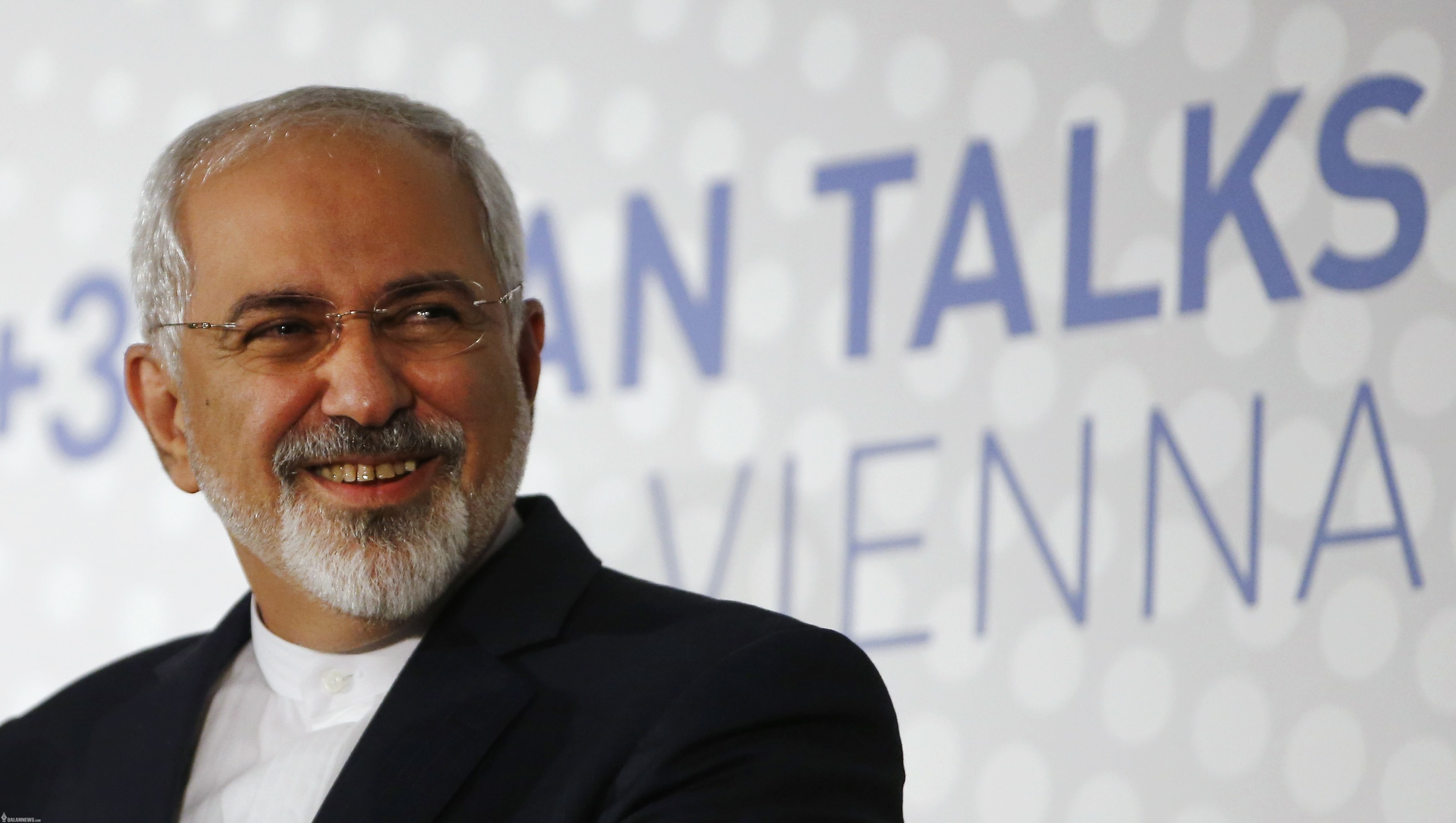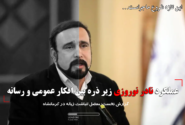قلم، موسسه تحقیقاتی گلوبال ریسک اینسایتز ( Global Risk Insights ) که مقر آن در لندن است، در گزارشی گفت: محمدجواد ظریف همانند شخص سال ۲۰۱۴میلادی گلوبال ریسک اینسایتر که ‘نارندرا مودی’ نخست وزیر هند بود، این فرصت را به ایران داد که درگیر یک گفت وگوی فعال با جامعه بین الملل و اقتصاد جهانی بعد از سال ها انزوا شود.
این موسسه افزود: سال ۲۰۱۵ میلادی یک سال هیجان انگیز به لحاظ ریسک سیاسی به شمار می آید. تحولات سیاسی زیادی در عرصه جهانی و منطقه که آغشته با خشونت بودند در این سال شاهد بودیم. بااین حال، توافق هسته ای ایران در چهاردهم جولای میان ایران و گروه پنج به علاوه یک ، یک رخداد مثبت در عرصه بین الملل محسوب می شود که از مهم ترین و تأثیرگذارترین تحولات در سال جاری میلادی بشمار می آید.
این موسسه تحقیقاتی گفت: مهارت های ظریف در زمینهٔ دیپلماسی و مذاکره و گفت وگو ، ایران را از انزوا خارج و به جامعه بین الملل بازگرداند.
موسسه ‘گلوبال ریسک اینسایتز’ اضافه کرد: اگر چه هنوز زود است که در مورد اینکه آیا این توافق کاملا موفقیت آمیز بوده است ، سخن گفت؛ اما مهارت دیپلماسی و فصاحت دکتر ظریف اجازه داد که ایران و آمریکا بتوانند بر سر یک میز آمده و در مورد توافق و لغو تحریم ها اقتصادی ایران، به مذاکره بپردازند.
گلوبال ریسک اینسایتز افزود: این یک شاهکاری قابل توجه است که ارزش (اعطای) جایزه امسال را داشته است. ظریف نشان داد که او سیاستمداری توانمند و مذاکره کننده ای ماهر است.
این موسسه تحقیقاتی گفتکه به سه دلیل از جمله خروج ایران از انزوا و توانمندسازی بالقوه اقتصادی ایران به دنبال رفع تحریم ها، ظریف را به عنوان برنده جایزه امسال خود انتخاب کرده است.
گلوبال ریسک اینسایتز در این خصوص عنوان کرد: نقش به یاد ماندی ظریف در رهبر مذاکرات هسته ای دو تحول مثبت ایجاد کرد نخست، توانایی ایران برای رسیدن به یک مصالحه با گروه پنج به علاوه به یک، به معنای آن است که ایران دیگر یک بازیگر منزوی در جامعه بین الملل نخواهد بود. و نکته دیگر اینکه درنتیجه این توافق، نقش ایران به عنوان یک قدرت منطقه ای تضمین شد.
این موسسه تحقیقاتی گفت در حال حاضر امکان استفاده از توان و نفوذ ایران برای حل مسایل و بحران منطقه ای فراهم آمده است و ظریف نقش برجسته ای را در مذاکرات اخیر در وین در ارتباط با حل سیاسی بحران سوریه از خودش نشان داد.
این موسسه تحقیقاتی با اشاره به تاثیرات توافق هسته ای وین در بهبود وضعیت اقتصادی ایران، افزود: انزوای ایران از جامعه بین الملل سبب شد که تورم در ایران به ۴۰ درصد برسد و تولید ناخالص داخلی این کشور با سخت شدن تحریم ها در سال ۲۰۱۱ میلادی، تا ۲۰ درصد کاهش یابد. مهارت و قابلیت گروه مذاکره کننده ایران به رهبری ظریف فرصت های بالقوه اقتصادی برای ایران در راستای برجام به همراه داشته است.
موسسه تحقیقاتی یاد شده گفت: در صورت لغو تحریم ها و آزادسازی دارایی ها، ایران در مقیاس بزرگ تری به اقتصاد جهانی مجددا خواهد پیوست. ایران برای به روز کردن بخش انرژی اش نیازمند حداقل ۲۰۰ میلیارد دلار است که خبر بزرگی برای شرکت های نفتی بین المللی است .
این موسسه گفت: به هر حال برنده بزرگ این رویدادها مردم ایران هستند که به دلیل تحریم های اعمال شده با مشکلات اقتصادی ازجمله نرخ ده درصدی بیکاری مواجه شده اند .
‘ گلوبال ریسک اینسایتز’ در تعریف ریسک سیاسی گفته است: تصمیم های سیاسی، اقدامات و وقایعی که می توانند تاثیرات بزرگی بر روی تجارت و فعالیت های اقتصادی بگذارند، ریسک سیاسی خوانده می شود و ریسک سیاسی یک متغیر حیاتی تقریبا در همه کسب وکارها یا تصمیم سرمایه گذاری بشمار می آید .
گلوبال ریسک اینسایتز ، یک موسسه تحقیقاتی در زمنیه ریسک اقتصادی و ژئوپلتیک بر روی جامعه کسب و کار است که مطالبش را به صورت آنلاین منتشر می کند.

GRI’s 2015 Person of the Year in Political Risk
Iranian Foreign Minister Mohammad Javad Zarif is Global Risk Insights Person of the Year in Political Risk 2015. Like our 2014 GRI Person of the year Indian Prime Minister Narendra Modi, Zarif has given Iran the opportunity to engage in active dialogue with the international community and the global economy after many years of isolation.
۲۰۱۵ has been an exciting year regarding political risk. There have been political upheavals throughout the globe and many a region marred by violence. However, looking positively on the international scene theIranian nuclear deal on the 14th of July between Iran and the P5+1 stands out as the most important and influential event that has occurred this year.
Through skilled diplomacy and tough negotiation, Iranian Foreign Minister Mohammad Javad Zarif has brought Iran out of the cold and back into the international community.
Although it is significantly early to say whether the deal will be a complete success, Zarif’s skilled diplomacy and rhetoric has allowed Iran and the United States to come to the table and negotiate a deal and remove sanctions from the Iranian economy.
This is a significant feat, worthy of this year’s award. Zarif has demonstrated that he is a formidable political operator and skilled negotiator whose continued role at the helm of Iranian foreign policy will spell new exciting possibilities for post-sanction Iran. Here are three reasons why Zarif is the winner of this year’s award:
Iran is no longer an isolated actor
Zarif’s somewhat apt and memorable role in spearheading the Iranian nuclear negotiations has produced two positive developments. Firstly, the ability for Iran to come to a compromise with the P5+1 about its nuclear capabilities means that it is no longer isolated from the international community.
Iran has now cooperated with the IAEA and other international agencies in securing the terms of the deal, but it demonstrates a willingness to remove its previous pariah status within the international community.
Secondly, the conclusion of the deal has secured Iran’s role as a regional power. It now has the ability and potential to use its expanding influence on other regional issues and crises. Zarif’s prominent role in the recent talks in Vienna on the future of a political solution to the Syrian Crisis demonstrates this.
An invitation by the US to this event signifies Iran’s role in the Syrian conflict and its growing ability to influence Middle Eastern Politics. With Zarif continuing in his capacity as the Foreign Minister, there is potential for constructive cooperation with Europe and the US in fighting the rise of Daesh in Syria and Iraq.
Economic Potential
Iran’s isolation from the international economy has caused inflation to reach 40% and GDP to drop by 20% since sanctions were tightened in 2011. The negotiating capability and skill of the Iran delegation led by Zarif gave Iran many potential avenues of increasing economic development in the Joint Comprehensive Plan of Action (J.C.P.O.A).
Due to sanctions relief and an unfreezing of assets, Iran will now become the largest country to rejoin the global economy. Iran’s outdated energy industry requires at least USD$200 billion in upgrades, which presents big news for international oil companies. Other sectors in the economy will develop as well as Iran seeks to update its health, banking and commercial aircraft industries after many years of economic neglect.
In terms of trade and commerce, China, Russia and France will recommence business dealings that were cancelled previously. On top of this, trade and economic ties between Iran’s neighbours such as Turkey,Oman, and the UAE will develop and promote more regional economic cooperation.
However, the big winner in all this is the Iranian population. Sanctions have crippled the Iranian economy and unemployment is at 10 %. As more money is injected into the economy through oil revenues and investment, there is the potential for increased economic development in necessary infrastructure and a higher standard of living for the rapidly expanding Iranian middle class.
A possible normalization of US-Iranian relations
For the first time in 36 years, there are signs of a possible political rapprochement between Iran and the United States. While normalizing relations between Iran and the United States face incredible domestic pressure and there are considerable hurdles to overcome, the dialogue between Iran and the US has been positive.
Zarif and US Secretary of State John Kerry have developed a healthy dialogue over the last two years that has seen the Iranian Nuclear deal come to fruition despite calls from both conservative elements in the Majlis and Congress looking to shut down the deal at any opportunity.
Compromise and rationality were prominent and slowly and steadily Zarif’s active dialogue and skill as a foreign minister have alleviated some of the distrust that both nations feel for each other.
It may take some time for developments to transpire and progress, but the cool-headed way that Zarif has dealt with the nuclear issue and maintained a strong Iranian position shows a positive development in the possible normalization of US-Iranian relations.







